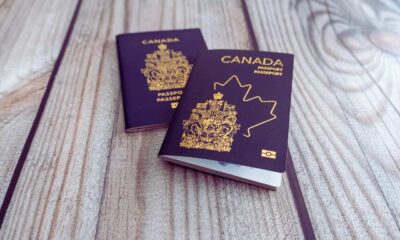Immigration Announcement
IRCC to Launch Refugee Pathway Under Economic Mobility Pilot

The Canadian government is set to launch a new immigration pathway that aims to connect skilled refugees and displaced persons with employers in Canada. IRCC Minister Sean Fraser recently announced that the pathway will be available under the federal Economic Mobility Pathways Pilot (EMPP).
The EMPP exists to help employers overcome labor shortages in key occupations by pairing skilled refugees and displaced persons with Canadian employers. The new pathway launching this summer will give employers more opportunities to address in-demand jobs such as nurse aids, personal support workers, long-term care aids, software engineers, web designers, mechanical and electrical engineers and technicians, teachers, tourism and hospitality workers, truck and delivery service drivers.
Over the next few years, Canada is looking to expand the EMPP and welcome 2,000 qualified refugees and displaced persons to fill labor shortages via the program.
Canada’s Immigration Targets are Rising to Meet the Demand for Workers
The Canadian government is looking to welcome 465,000 new permanent residents this year, with plans to increase the target to 485,000 immigrants in 2024, and 500,000 immigrants in 2025 under the Immigration Levels Plan 2023-2025. Last year, Canada welcomed just over 437,000 immigrants. Canada’s record levels of immigration numbers, combined with record foreign student and worker admissions, resulted in the country’s population growing by over one million people for the first time in history last year.
Canada’s ambitious immigration targets are largely aimed at addressing the country’s high number of labor shortages. Canada offers more than 100 different economic class immigration pathways. The leading economic class pathway is the Provincial Nominee Program (PNP), which enables provinces and territories to identify candidates who meet their local economic needs. The leading federal pathway is the Express Entry system, which has been seeing a lot of activity recently.
Four provinces announced their latest PNP results over the past week, while IRCC has held two major Express Entry draws over the past two weeks, inviting 14,000 candidates in total to apply for permanent residence. In conclusion, Canada is taking innovative steps to address its labor shortages by launching new immigration pathways such as the EMPP that will enable skilled refugees and displaced persons to connect with Canadian employers. With its rising immigration targets and numerous economic class immigration pathways, Canada remains an attractive destination for skilled immigrants looking to work and live in a welcoming country with a high standard of living.


























